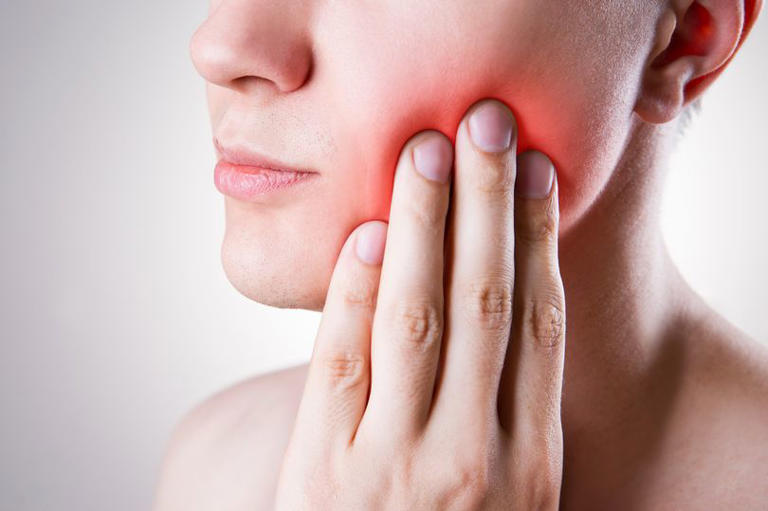












How to check for mouth-cancer as tell-tale signs are being missed
The number of people getting mouth cancer has more than doubled in the past 20 years, and regular dental checkups are vital for spotting early signs.
Last year 3,034 people in the UK lost their life to mouth cancer, and the number of people getting diagnosed has risen by 49% in the past 10 years - and 104% in the past 20, according to the Mouth Cancer Foundation. Some experts believe that one of the reasons for the increase in incidence, and deaths, is because of the difficulties in getting appointments - meaning the telltale signs are being missed.
According to the NHS, mouth cancer can affect any part of your mouth, including the gums, tongue and inside of the cheeks, or lips. But many people don't know what they are looking for, meaning symptoms are going undetected.
But you don't have to wait to see a dentist to find out if you're at risk. There are certain checks you can do, and Dr Michael Ho, a face, neck and mouth cancer consultant at the University of Leeds, has shared some of the tell-tale signs you shouldn't ignore.
One of the things you should look for are ulcers, or broken areas in the lining of the mouth, that don't heal within three weeks. While ulcers are common and don't mean you definitely have cancer, ones that are persistent should be checked by a GP or dentist, the NHS warns.
Dr Ho told The Mail Online: "The commonest sign of mouth cancer is a persistent ulcer that lasts more than three weeks." Another thing to look out for is unexplained swellings or lumps around the mouth or jaw. The NHS specifies that lumps inside your mouth, or on your lip, or in your neck and throat can be signs.
You should also look out for red or white patches, which may be tender or painful. While they could be caused by other things such as thrush, it's important to get them checked out.
Another sign is wobbly or loose teeth, according to Dr Ho. He said: "When [cancer] invades the jaw bone, it can result in wobbly teeth. In these situations, assessment by a dentist to assess the area of concern and a jaw X-ray can help provide more information."
Next, you should check for a sore throat or hoarseness, especially if it's lasted more than six weeks. According to Cancer Research UK, someone who has mouth cancer might experience their voice becoming huskier or more quiet.
Lastly, you should be wary of numbness around the mouth or tongue, which may be felt in patchy areas. This happens because the cancerous cells have caused nerve blood vessel damage.
It's important to remember that while it doesn't mean you definitely have cancer if you experience these symptoms, it's important to get them checked out. If you're worried, speak to your GP.
Story by Ariane Sohrabi-Shiraz: Mirror
No thoughts on “How to check for mouth-cancer as tell-tale signs are being missed”
Articles - Most Read
- Home
- LIVER DIS-EASE AND GALL BLADDER DIS-EASE
- Contacts
- African Wholistics - Medicines, Machines and Ignorance
- African Holistics - Seduced by Ignorance and Research
- African Wholistics -The Overlooked Revolution
- The Children of the Sun-3
- Kidney Stones-African Holistic Health
- PART ONE: DIS-EASE TREATMENT AND HEALTH-3
- 'Tortured' and shackled pupils freed from Nigerian Islamic school
- The Serpent and the RainBow-The Jaguar - 2
- PART ONE: DIS-EASE TREATMENT AND HEALTH-2
- PART ONE: DIS-EASE TREATMENT AND HEALTH-4
- PART ONE: DIS-EASE TREATMENT AND HEALTH-5
- King Leopold's Ghost - Introduction
- African Wholistics - Medicine
- Menopause
- PART ONE: DIS-EASE TREATMENT AND HEALTH-6
- The Mystery System
- The Black Pharaohs Nubian Pharaohs of Ancient Egypt
Who's On Line?
We have 85 guests and no members online
Ad Agency Remote
Articles - Latest
- Do Yams Have Carbohydrates?
- Cardiac-a-vest! Remarkable garment could save lives by predicting heart attack risk
- Inflammation-Busting Foods: A Review by Nutrition Professionals
- Dermatologist's insight on shower frequency without harming skin
- Meat is crucial for human health, scientists warn
- How dangerous are interactions between herbal medicines and prescribed drugs?
- The definitive guide to BMI, and how much you should really pay attention to it
- The nightly ritual that could improve memory and brain health, according to scientists
- Hyacinth Bean: How Nutritionists Rate Its Nutrients, Health Effects, And More
- Top healthiest fruits with anti-inflammatory properties
- Vitamin B12 deficiency symptoms: How to spot the signs in your feet
- Dehydration may be as bad 'as smoking' for veins - how much water you need to avoid stroke
- Winter Squash: A Superfood Or Not? Nutrition Professionals Weigh In, With Serving Tips And Health Risks
- Why The Nutrition Professionals Love Winter Melon, Nutritional Benefits And Serving Size Guidelines
- Lesser-known lung cancer symptom in arm or shoulder that can't be ignored
- HIV breakthrough as new technology removes all traces of virus from infected cells
- Seven fruits for diabetics to avoid that can increase blood sugar spike risk
- Top 7 Uses and Benefits of Dead Nettle Plants
- 6 physical symptoms of anxiety you shouldn’t ignore, according to experts

